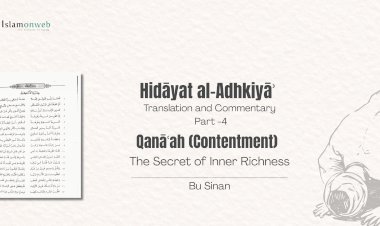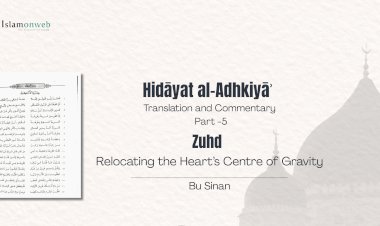Opportunities That Knock Your Door Many Times
By Shaikh Ibrahim Barnawi & Dr Muhammed Madappalli
Most of the time, what comes in our daily talks happens to be groundless. In other words, many proverbs, similes, and examples that we frequently use during our daily conversations are worthless. Many say that opportunity does not knock on the same door twice. This proverb may be true in the issues concerning human interactions and worldly matters. However,there are matters related to Allah withfull of opportunities that repeat and knock on the door again and again. What a Muslim is supposed to do is to keep himself aloof from the great sins (al-kabā’ir) and expect forgiveness for smaller sins (al-Saghā’ir). “Allah owns all that is on heavens and earth so that he may punish according to someone’s sin and reward according to his virtues. (They are) those who stay away from the bigger sins and low acts that are not blunders. Verily your Lord is infinitely forgiving”(Quran, 53: 31, 32).“If you stay away from the prohibited greater sins, We would forgive your misdeeds and admit you to the honorable place” (Quran, 4:31).
Everyday prayers, a Friday prayer to the next, and a Ramaḍān to the next are the causes of forgiveness for misdeeds between them, provided we refrain from the great sins. Rasool ﷺ says: ‘Even turning around to meet a Muslim on your sides and shaking hands with him will cause your sins to fall down like the leaves of a tree!’(Musnad al-Bazzār).
Opportunities given by Allah repeat, increase, follow, and recur. See the fortune that our deeds are raised up and showcased in front of Allah every Monday and Thursday (Sahih Muslim). Eventually, Allah will forgive everyone who did not associate partners with Him, which is the gravest sin, except to the one who keeps animosity with his fellow brother. And Allah says, “Wait for these two until they are being rectified” (Sahih Muslim).
Also Read : changing perspectives in sirah studies
We are in the glorious month of Ramaḍān,which is a call to reforming the self. Allah says, “Be God-conscious and settle the affairs between you” (8:1). “Verily, Muslims are brothers, therefore, make peace among your brothers and be God-conscious, you may be shown mercy” (49:10). It is a call to coming closer, kindness and mutual understanding, and not a call to envy, fighting, division, and ruthlessness that we lived with for ages. This will not happen without curbing the causes of enmity and uprooting the factors that dilute the emotion of love. The Prophet ﷺ loved to live pure-hearted. He used to say that anyone of you should not bring any negativity about anyone because I wish to come to you with a positive and happy heart (Sunan Abi Dawud).
Therefore, has ten to be best of the people and purest of them. They are those who are pure-minded and clean-hearted. Rasool ﷺwas asked: Who are the best people? He replied: All those who are clear-hearted and truthful tongued. They asked: We understood the meaning of ‘truthful tongued’, but who is clear-hearted? He replied: He is the God-conscious and clean individual who neither commits sin nor cheat, envy, or grudge (Riyaḍ al-Ṣāliḥīn). “There is no virtue in most of their secret discussions, except in those who encourage charity, practice virtue or bring unity among people. Whosoever does that expecting the divine rewards, we will bestow him with a great reward (4:114).
The best enjoyment for the people of heaven is that Allah would have taken out the hatred and animosity from them. Quran says, “We will remove from their heart the bitterness, and they are like brothers who sit facing each other on the thrones” (15: 47). How wonderfully Imam Shafi’ portrays it:
“When I forgave and kept no enmity with any
I freed myself from the tensions of animosity
I salute my enemy when I break him
So as to stop the evil on me with salutations
I prefer good tide to the man whom I made angry
As if my heart is filled with love
I am not safe for the rude heartedness wrapped me
Then, how can I escape from the people of animosity” (Dīwān al-Shāfiʿī)?
(Shaikh Ibrahim Barnawi, Sudan, is an Imam and Khatib in the ministry of Auqaf and Islamic Affairs, Qatar. Dr Muhammed Madappalliis currently working as a Post Graduate Teacher at Birla Public School in Qatar. He is also a section Editor of Islamonweb English. He started his career as an Assistant Professor of Sociology at Lovely Professional University, Punjab, India.)
Disclaimer
The views expressed in this article are the author’s own and do not necessarily mirror Islamonweb’s editorial stance.
























Leave A Comment